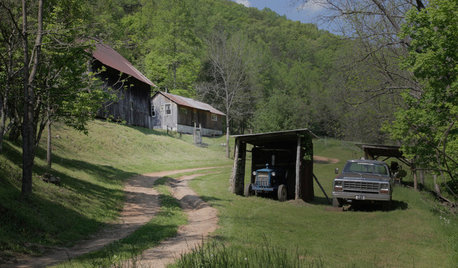JOJG Peer Rankings
keithnotrichard
18 years ago
Related Stories

MOST POPULARGet Ready for the Smart Coffee Table
Intelligent tables with touch screens are reaching the consumer market, with all the power of personal computers and more
Full Story
REMODELING GUIDESThe 2013 Best of Houzz Badges Are Here!
Watch for profiles sporting this honor, which goes to professionals with the most popular design work and top ratings
Full Story
PAINTINGBulletproof Decorating: How to Pick the Right Kind of Paint
Choose a paint with some heft and a little sheen for walls and ceilings with long-lasting good looks. Here are some getting-started tips
Full Story
TASTEMAKERSNew Series to Give a Glimpse of Life ‘Unplugged’
See what happens when city dwellers relocate to off-the-grid homes in a new show premiering July 29. Tell us: Could you pack up urban life?
Full Story





gardenberry
Niwashisan
Related Professionals
Glendora Landscape Architects & Landscape Designers · Richmond Heights Landscape Architects & Landscape Designers · Milford Landscape Contractors · Crystal Landscape Contractors · Englewood Landscape Contractors · Haverhill Landscape Contractors · Huntington Landscape Contractors · Mastic Beach Landscape Contractors · Seminole Landscape Contractors · Woodbury Landscape Contractors · Braintree Decks, Patios & Outdoor Enclosures · Chicago Decks, Patios & Outdoor Enclosures · Houston Decks, Patios & Outdoor Enclosures · Mastic Decks, Patios & Outdoor Enclosures · Vandalia Decks, Patios & Outdoor Enclosuresbahamababe
gardenberry
DonPylant
Niwashisan
patjonking
Niwashisan
inkognito
gerald
inkognito
keithnotrichardOriginal Author
inkognito
patjonking
Niwashisan
keithnotrichardOriginal Author
edzard
gerald
Niwashisan
Lee_ME
patjonking
asuka
gerald
asuka
keithnotrichardOriginal Author
edzard
Herb
nachodaddy
DonPylant
inkognito
ScottReil_GD
chris74robinson
Herb
Lee_ME
Herb
ltfuzz
Herb
inkognito
Herb
keithnotrichardOriginal Author
edzard
Lee_ME
didgeridoo
Lee_ME
didgeridoo
gerald
keithnotrichardOriginal Author
Herb
Herb
islandplace